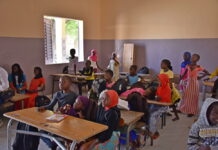A new study from rural Kenya offers a critical counterpoint to the global mental health agenda’s reliance on biomedical interventions. It demonstrates that employers are willing to include people with psychosocial disabilities in the workforce when structural changes and social support are prioritized. The research, led by Isaiah Gitonga of Maynooth University, highlights how a rights-based approach focused on social determinants rather than clinical diagnoses and treatment can pave the way for more inclusive employment practices in the Global South.
The study, published in the Journal of Psychosocial Rehabilitation and Mental Heath, finds that although there are barriers and challenges, rural Kenyan employers are willing to employ people with psychosocial disabilities (PWPD). Even when employers are ill-informed about psychosocial disabilities and have concerns about productivity, occupational hazards, brand image, and disclosure when considering/employing PWPD, they are largely open to working with PWPD. They suggested workplace adjustments, socioeconomic empowerment, and policy changes to make employment more accessible.
The authors write:
“Despite differing opinions, employers expressed a willingness to work with and employ PWPD. This study sheds light on the current practices, perceived barriers, and enablers for improving work and employment rates of PWPD in rural settings.”
As the global mental health movement continues to expand, much of the focus has been on diagnosing and treating individuals within a biomedical framework, often sidelining the social, economic, and structural factors that shape mental health outcomes. However, new research in rural Kenya shifts the narrative, showing how a rights-based approach to psychosocial disability can address exclusion in meaningful ways. By engaging employers who, despite holding misinformed views on psychosocial disabilities, are willing to make workplace adjustments and push for policy changes, this study underscores the potential of an intervention model grounded in social justice and economic empowerment rather than pathologization.















